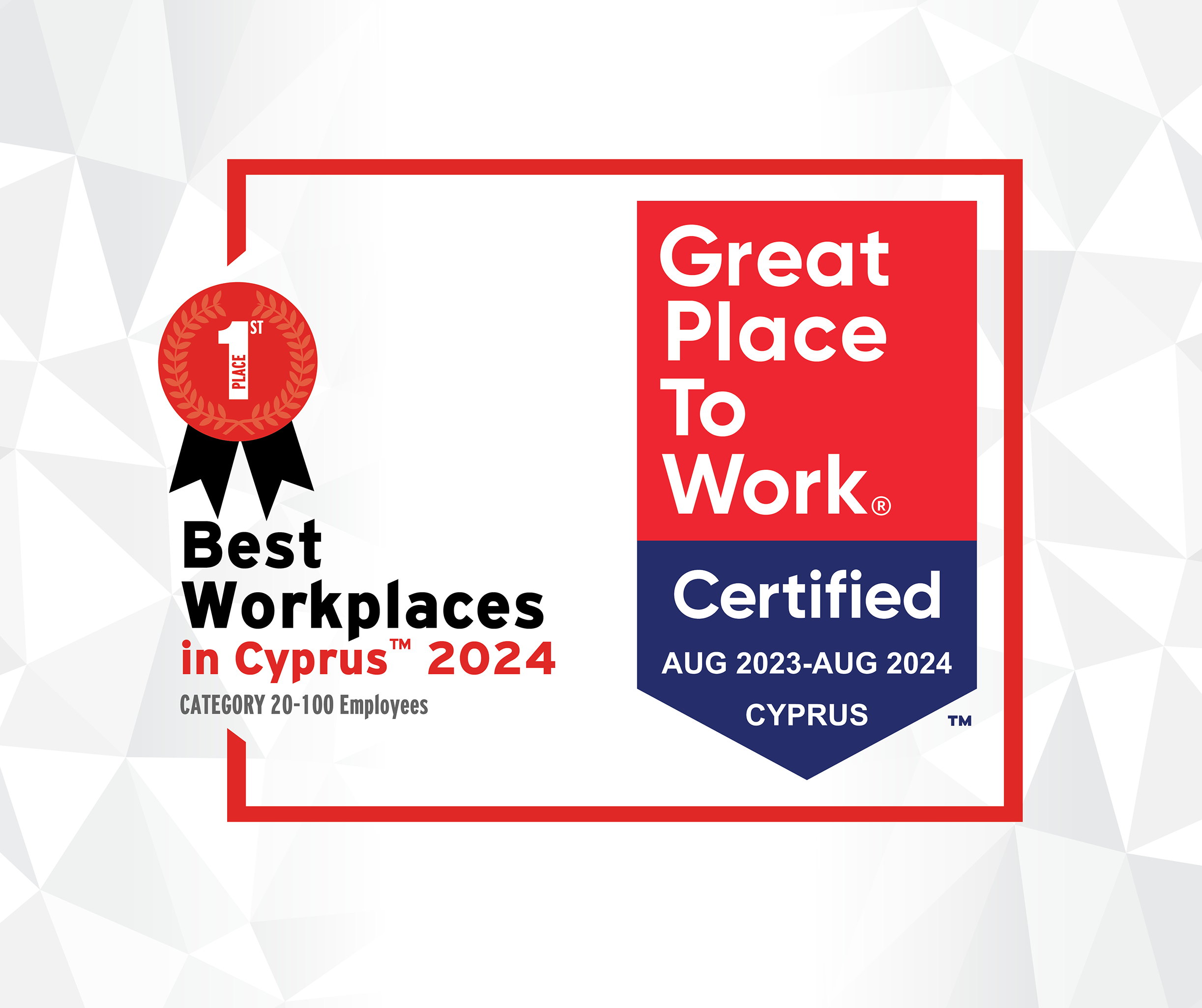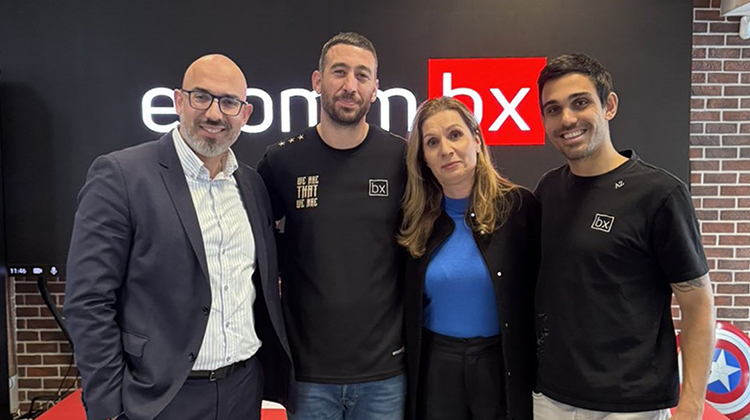

Georgia Pitta – CFO
Christoforos Panagi – Deputy CFO
Stella Orphanou – Finance Senior Manager
In this Q&A, we hear from our finance Spartans Georgia Pitta, CFO; Christoforos Panagi, Deputy CFO; and Stella Orphanou, Finance Senior Manager, on the evolving role of CFOs, especially in fintech. They discuss navigating challenges and leveraging opportunities through technology, strategic planning, and relationship-building, highlighting how CFOs adapt to today’s business complexities.
GP: In today’s dynamic business environment, the role of the CFO has evolved into that of a strategic partner to both the Board of an organization and the CEO, as well as to the wider management team. In fast-moving and demanding industries, such as fintech, CFOs need to continuously develop their knowledge and expertise in areas outside their traditional comfort zone, including technology, product innovation, anti-financial crime, and regulatory compliance. Nowadays, CFOs are involved in building strategy, formulating the business plan, actively identifying relevant risks, and engaging in the effective and efficient management of those risks. Accordingly, CFOs are visible throughout the organization and are pivotal in setting strategic targets and achieving them.
CP: One of the biggest challenges we face as the finance function relates to aligning our technology implementations with the reporting tools we use to extract all required information. Achieving this alignment is crucial as it enables comprehensive financial reporting, monitoring of KPIs, regulatory reporting, and strategy formulation. Additionally, the process of complying with legislative updates, such as the Central Electronic System of Payment Information (“CESOP”), involves significant costs. Compliance requires proper budgetary planning and monitoring.
Technology and Artificial Intelligence
CP: As a fintech company, driven by technological evolution, investing in new technologies is essential for our progress and growth. Given our commitment to offering our clients the best service through our developed systems, we have invested in both new technologies (software) and in specialized personnel who can develop and deliver our vision and strategy. This required significant investment in the development phase as well as in the integration and implementation of these systems and technologies within the organization. Therefore, continuous monitoring of these developments from a budgetary perspective is crucial.
SO: AI has the potential to revolutionize the CFO’s role in problem-solving and decision-making by providing tools to manage performance proactively and support business decisions through its ability to extract, analyze, and interpret real-time data quickly and efficiently. By automating many manual accounting tasks, AI can reduce human errors and related costs and streamline processes from bookkeeping to financial reporting to audits, forecasts, and tax compliance. AI is among the most powerful technologies we have ever encountered. CFOs should view AI not merely as an automation tool but as a strategic asset that can unlock new opportunities for growth and competitiveness.
GP: The company’s operations can primarily be financed through bank lending as well as financing from shareholders (equity financing). Depending on the industry, other financing methods include crowdfunding, peer-to-peer lending, and even government funding or grants. For startups, a critical component of the business plan, in addition to the vision and idea, is the chosen financing method. Companies determine their financing approach as part of their initial strategic business plan. The CFO’s responsibility is to evaluate, oversee, and ensure that capital is raised and managed in accordance with the plan, ensuring that strategic targets are monitored to turn the company profitable and consequently self-sufficient in supporting its wider operations.
SO: The CEO-CFO relationship is critical to any business’s success, ensuring that strategic decisions are both well-informed and financially viable. At ECOMMBX, we maintain a healthy and balanced relationship based on trust and credibility. We work closely together to identify opportunities and tackle challenges through collaborative problem-solving. Generally, CFOs and Finance Experts must possess strong communication skills and maintain open lines of communication with all stakeholders. By building and maintaining effective communication, the Finance Function can align stakeholders’ needs with the company’s strategy, gathering informed feedback and valuable information. This assists CFOs and their teams in supporting robust financial decisions and leading their companies to success.
GP: I wouldn’t say there is a single hard decision. However, challenging decisions are part of the role and must be made daily. These can range from hiring the right people to engaging with technology providers and developing the right product. Decisions need to be made rapidly and must be well-thought-out and targeted, especially regarding the outsourcing of critical functions where extra care is needed to ensure the decision is the most appropriate for the organization. When dealing with people, empathy and transparency are vital. The impact of any decision needs to be monitored to ensure agility, appropriate and close monitoring of budgets, deviations from such budgets, and even the seeking of investment or financing.


Our COO Fotini Tsikkou, describes the strategy behind the expansion to Greece and the offering of free SEPA transactions to all European citizens.

At ECOMMBX, we stand with those who persevere. Through Ambassadors of Life powered by ECOMMBX, we partner with PASYKAF to support those in need.

A brief yet powerful insight from our Gregory Dellas, Chief Compliance & Innovation Officer, and our Georgia Pitta, CFO into who we are and what we do.

Our COO shared her insights on why empowering fresh talents is integral to our mission.
ECOMMBX Group Entities (“ECOMMBX Group”) operate under the brand name “ECOMMBX” with headquarters in Nicosia, Cyprus. The ECOMMBX Group includes: ECOMMBX LTD (HE354749), a Cyprus Electronic Money Institution regulated by the Central Bank of Cyprus (license no. 115.1.3.20/2018) providing payment and e-money services. ECOMMBX INVESTMENTS LTD (HE324665), a Cyprus Investment Firm regulated by the Cyprus Securities and Exchange Commission (license no. 228/14) providing investment and ancillary services. ECOMMBANX (GR) SINGLE MEMBER SOCIÉTÉ ANONYME (Reg. No. 161942801000) 21 Amerikis, Kolonaki, Athens/Attica, 10672, T: +302103645684. We provide acquiring services using the “ECOMMPAY” trademark under license.








